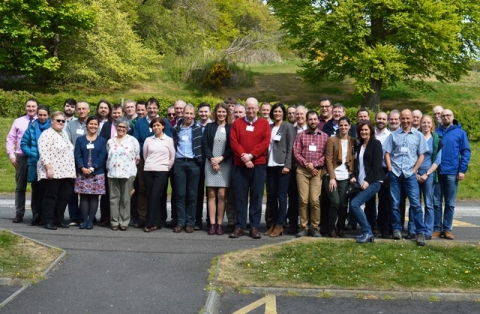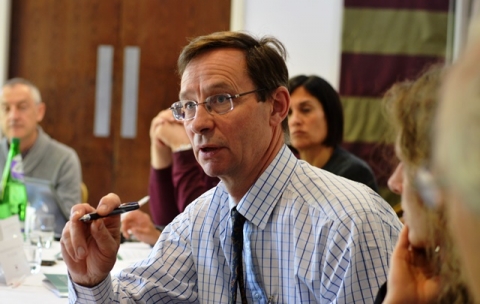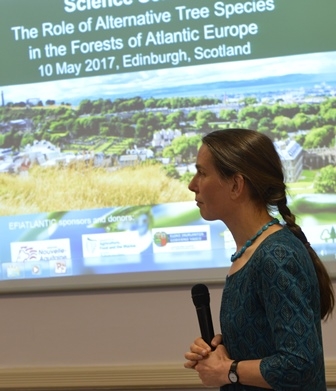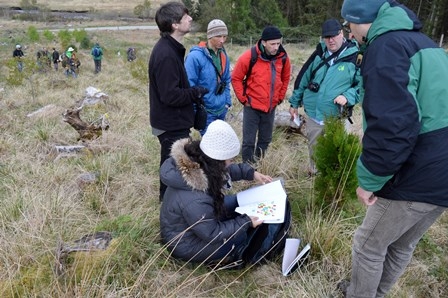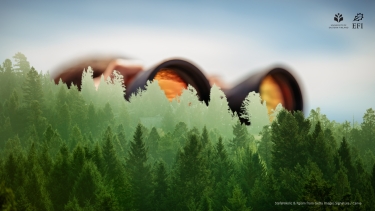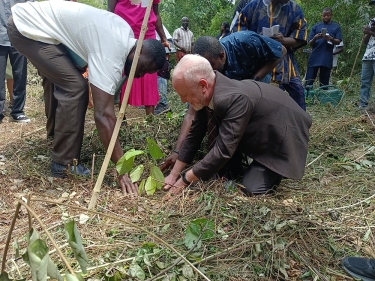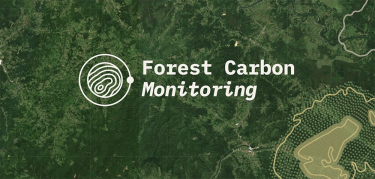2017 EFIATLANTIC & IEFC Annual Meeting
Members of the EFIATLANTIC and IEFC network explored the role of alternative species as a means of increasing resilience in the forests of Atlantic Europe at their Annual Meeting in Scotland from 9th to 11th May this year.
The event started with a business session in Edinburgh which reported on all the projects and publications worked on by EFIATLANTIC team in 2016, with the support of other units and its networks, such as IEFC, REINFFORCE, GEFF, EVOLTREE and the IUFRO Taskforce on Sustainable Planted Forests for a Greener Future.
It was clear from this session that the network is very active in the field of resilience, being involved in initiatives related to risk management and genetics in planted forests. As a consequence of the new EFI strategy on bioeconomy and related to the need for a better understanding of end user expectations from our forest products, the unit is engaging more and more in bioeconomy subjects.
Examples include developing close partnership with clusters such as XYLOFUTUR or analysing how wood from planted forests is transformed in the BENCHVALUE project. This session also provided partners with a chance to network and identify future opportunities, and to consider the future role of the regional office within the re-organisation of EFI.
The implementation of the new EFI strategy was also discussed in order to identify the main topic to be covered by the unit in future: participants reached a consensus that this should continue to be on the topic of “planted forests”.
Hosted and co-organised by network member Forest Research, with financial support from Forestry Commission Scotland, the one-day scientific seminar considered how the use of alternative tree species might help to achieve more resilient forests now and in the future.There were around 50 participants at the event from seven countries, including researchers, policy makers and practising foresters.
The meeting coincided with a period when Scotland is seeking to expand and further invigorate its forest industry: in 2016, the Scottish Government undertook a consultation on the Future of Forestry in Scotland confirming that climate change and species selection are key issues to address.
Members of EFIATLANTIC and IEFC have done a significant amount of work to address species choice and future forest management, including the REINFFORCE project, a focus for alternative species work.
In the afternoon, network partners updated colleagues on progress made by specific projects in an open session. Details of the presentations can be found below this article, but among the highlights were:
- A review of the history of the use of non-native species both in Scotland and in Ireland, resulting in a dominant role for Sitka spruce for timber production
- An overview of the role of non-native species in other parts of Europe including the interesting stories about radiata pine in the Basque country and eucalyptus in Spain and Portugal. These case studies showed that most of the planted forest in the Atlantic region rely on exotic species managed in monoculture
- Evidence from field trials also re-emphasised the importance of genetic sourcing, to avoid misinterpretation between species and provenance characteristics
- The implications of species diversification for forest genetics and timber-using industries was illustrated, showing that most of the industry was designed for softwood and that a move towards hardwood would require a large reorganisation of the sector.
The seminar was followed by a rare opportunity to visit forest sites and experiments in the West Coast of Scotland and consider future species selection and silviculture at some unique forestry locations. Tour participants noted that some species such as Eucalyptus nitens, Pinus peuce and big-leaf maple (Acer macrophyllum) are growing very well on warmer coastal areas in Scotland, but may not be sufficiently hardy to be considered as an alternative species on colder inland sites.The field trials visited during the tour provide a very good opportunity to assess the trade-of between wood production and resilience.
In conclusion, this event reminded participants about the complexity of the interactions that occur between climate change, pest and diseases, and forest species.It confirmed that in the context of climate change there are no simple answers when it comes to substituting species and that in terms of mitigation, it will be necessary to invest significantly in adaptation research to avoid major problems, such as the severe outbreak of Dothistroma needle blight on Corsican pine in the UK.
Better knowledge on the true potential of tree species and a standardised and collaborative effort on species characterisation are required, as well as the harmonised and worldwide monitoring of the spread of pests.
EFIATLANTIC would like to thank event host Forest Research (in particular Bill Mason and Evelyn Hall) and the Forestry Commission Scotland for their valuable support in organising this event.
Download the overall Event Schedule
Download the Scientific Seminar programme
Download the Business Meeting agenda
Science Seminar presentations
- The role of alternative tree species in Scottish forests. Scott Wilson (Independent Consultant, Aberdeen)
- Alternative tree species in Atlantic Europe: early results from the REINFFORCE project. Christophe Orazio (EFIATLANTIC, France)
- Alternative tree species in Irish forests. Niall Farrelly (Teagasc, Ireland)
- The current situation of non-native tree species in Europe. Elisabeth Pötzelsberger (BOKU, Vienna)
- The place of genetic diversity in adapting forests to climate change. Jean-Charles Bastien (INRA, France)
- Climate matching as a guide for selecting alternative tree species. Richard Jinks (Forest Research, UK)
- Bringing new species to the market place. Dan Ridley-Ellis (Napier University, Edinburgh)
Open Forum presentations
- Assessing the potential of alternative species to provide increased resilience to biotic and abiotic threats to plantation forests in Ireland. Richard Walsh, Andrew Cameron, and Niall Farrrelly (Teagasc, Ireland and Aberdeen University, Scotland)
- Stakeholder perspectives on using more diverse and ‘alternative’ conifers in commercial forestry in Scotland. Anna Lawrence (University of Highlands & Islands)
- Project LIFE Healthy Forests. Alejandro Cantero Amiano (HAZI Foundation, Spain)
- Using phone apps for reporting forest damage. Eduard Mauri (EFIATLANTIC, France)
- Conserving alternative tree species – the work of the International Conifer Conservation Programme. Martin Gardner (Royal Botanic Gardens, Edinburgh)
- Soil preparation for research on forest adaptation to climate change in France on a REINFFORCE demonstration site. Amélie Castro (CRPF, France) & Rebeca Cordero (EFIATLANTIC, France)
- The National Forest Wood Plan (PNFB) in France – implications for planted forests. Jean-Michel Carnus (INRA, France)
- Afforestation initiatives in Scotland. Brendan Callaghan (Forestry Commission Scotland)
